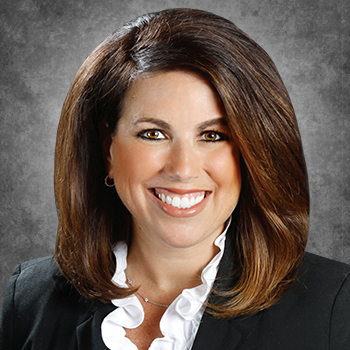Tips and Tricks for Setting Rules in your Community

May 31, 2016 – A few weeks ago, we shared with you some tips and tricks for setting rules in your community. And, since the summer officially kicked off this weekend, we’re sure there was no shortage of rule breaking in your community: loud parties that lasted well into the night, too many guests in the pool and at the grills, and plenty of cars parked where they shouldn’t be.
So, the question becomes: once you’ve set your rules, how do you enforce them?

Marcie Williams, President of RKW Residential
We spoke with an expert, Marcie Williams, President of RKW Residential, a property management company specializing in multifamily properties in Florida, North Carolina, and New York. They key, she says, is good communication. Read on to see what else she had to say.
Q: How do you decide to change building rules? And, how do you communicate those changes to residents?
A: We make changes based on what we hear from residents and what’s going on in the market. I was overseeing an older property that did not accept pets…we saw that the new competition was accepting dogs, so we changed the rules in that property to accept them, too. It was before social media, but since we felt it was a positive change, we sent out emails and created flyers to let our residents know. If there had been negative feedback, we would have encouraged residents to come speak with us directly. In that case, we didn’t feel there was a need for a town-hall-style group meeting.
We might test different approaches on a single property before we roll it out to all our 20 buildings and listings.
Q: Do you ever use surveys to see what residents want to change?
A: We do use surveys, but find they’re best for hearing about resident satisfaction as a whole. We’re open seven days a week and encourage our residents to come in and share their concerns or thoughts. We prefer a more organic approach of one-on-one interactions rather than surveys.
Q: But do you ever hold town-hall-style meetings to gauge interest in rule changes or new rules?
A: We have had a focus group at different times when we wanted to hear from our residents how we could improve the next community we would be working on or improve certain things within an existing community. The discussion might center around what amenities they use or what services they enjoy most. For example, what’s trending now: the popularity of custom closets and places where they can put their keys or charge their phones at a charging station.
Q: What do you find is the best way to communicate significant changes—email, text, or a letter?
A: If it’s a positive change, we like to communicate through social media, email and flyers. A positive change might involve extending office hours during the holiday season or hosting a new social event and adding it to the building calendar. If it’s what might be viewed as a negative change—closing the office open on Sundays, or restricting use of the pool, we tend to use just an email or flyer so the information stays within the community and isn’t pushed out to a bigger group.
Q: What types of changes have you recently instituted and how did you share the changes?
A: Permitting pets and extending office hours to Saturdays were two more recent ones, and we used social media, emailed, and posted flyers throughout the building. Both changes were well received and resulted in higher renewals and improved overall customer satisfaction.
Q: What’s currently on the list of possible changes, and how will you share the news?
A: As a growing company, we’re always looking at ways to serve customers and use different technologies to enhance their experience. We’re looking at new ways to track how potential residents find us through different advertising sources, so we might test different approaches on a single property before we roll it out to all our 20 buildings and listings.
Q: What do residents seem to care most about these days?
A: They care most about convenience and having access 24/7 to building amenities so they can come home from work and use them—whether its a business center, pool, or grill. They don’t want availability just during traditional office hours. They also care about the convenience of being able to pay their monthly lease online, or request online a service visit if there’s a repair to be made and they want to get a reply back quickly.
